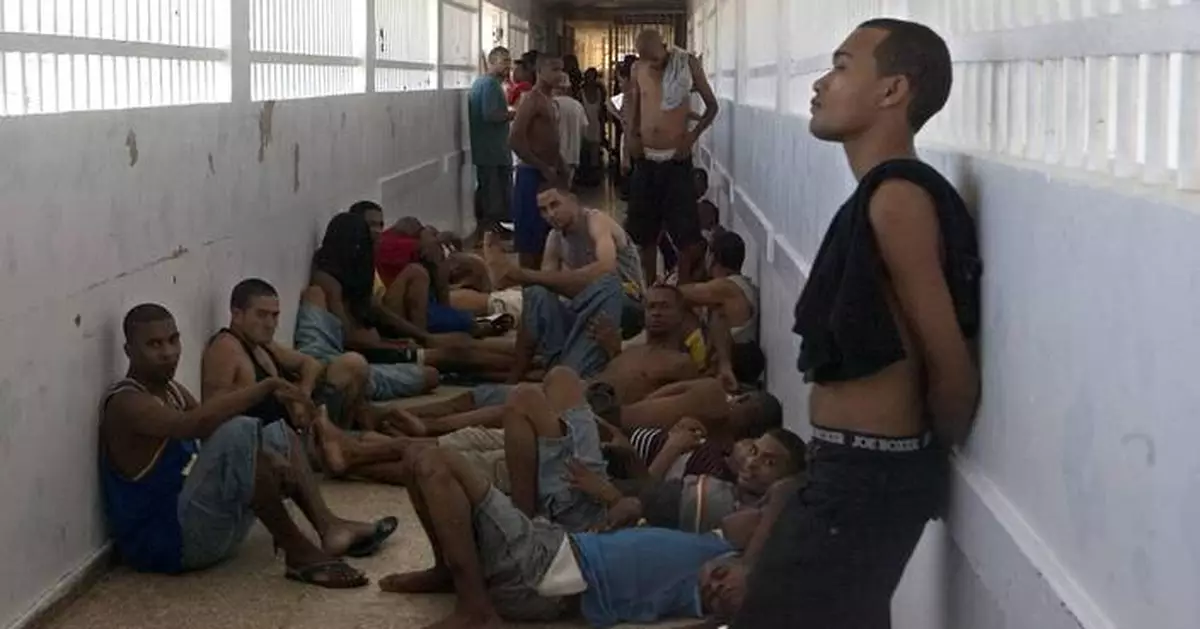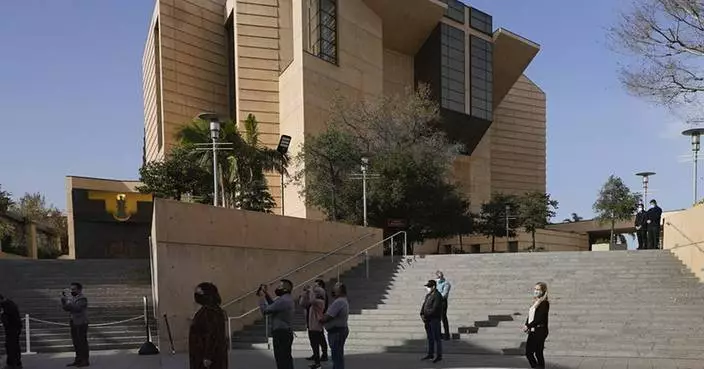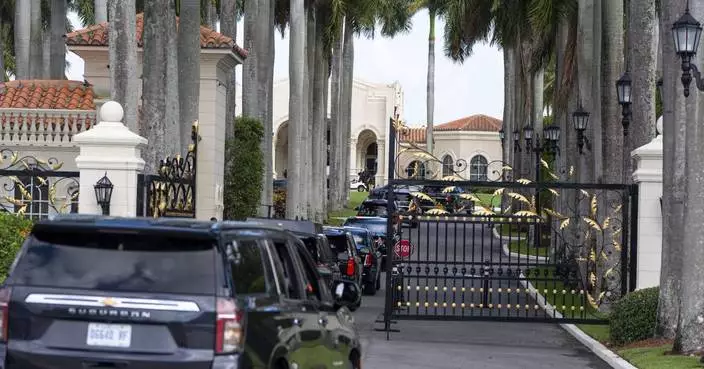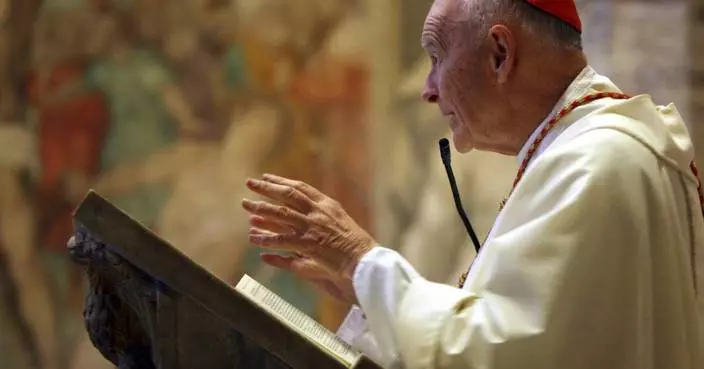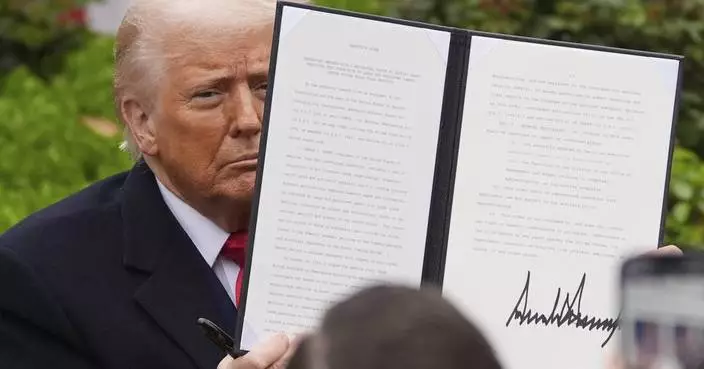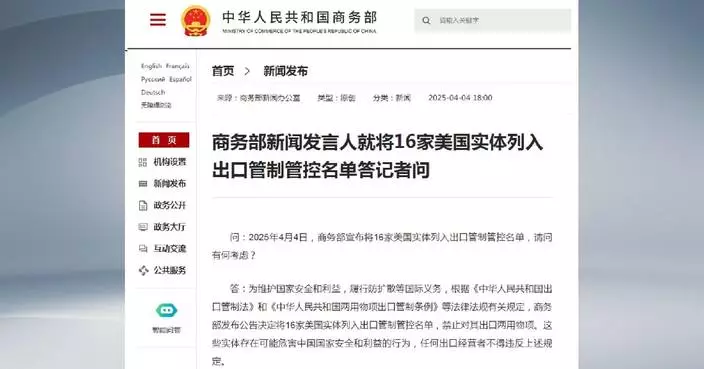SANTO DOMINGO, Dominican Republic (AP) — They’re known as “frog men,” inmates who are forced to sleep on prison floors across the Dominican Republic, often next to overflowing toilets or holes in the ground that serve as one.
Thousands of them are crammed into the country’s severely overcrowded prisons, some operating at seven times their capacity. A majority languish there without ever having been charged with a crime, and activists warn they face inhuman conditions and a lack of medical care.
Despite promises to improve the system, critics say the Dominican Republic continues to push for and allow pretrial detentions in nearly all criminal cases where no charges have been filed and has made few changes as problems within prisons keep mounting.
“Prisons have become no man’s land,” said Rodolfo Valentín Santos, director of the Dominican Republic’s National Public Defense Office.
Over 60% of the country’s roughly 26,000 inmates are being held under preventive detention, without any charges, according to the National Public Defense Office. Proponents argue the measure aims to protect society and allows authorities time to collect evidence in a case.
But some detainees have spent up to 20 years in prison without ever being found guilty of a crime, Valentín said.
He noted that the country’s Constitution and penal code dictate that preventive detention is an “exceptional” measure. There are six other measures that don’t involve prison time, including bail, but Valentín said they are rarely used.
On a recent afternoon, Darwin Lugo and Yason Guzmán walked out of La Victoria National Penitentiary, in the northeast corner of the sprawling capital, Santo Domingo.
The prison was built for a maximum of 2,100 inmates but holds more than 7,000 of them, with more than 3,300 under pretrial detention, according to the National Public Defense Office.
It is the country’s oldest and most populated prison.
“You have to watch out for your life,” said Lugo, who with Guzmán visited several friends held there, some under pretrial detention.
“There are a lot of them who are not doing well,” Guzmán said of inmates there. “There’s extreme poverty.”
They said their friends, who have spent more than five years incarcerated there, are well-connected and only occasionally request money or ask that their cell phone’s SIM card be recharged.
Last year, at least 11 inmates died at La Victoria following a short circuit in a cell that sparked a fire and an explosion. It was one of the country’s deadliest prison fires since 2005, when at least 134 inmates were killed in the eastern town of Higüey after rival gangs set their bedding ablaze.
After last year’s fire at La Victoria, Dominican President Luis Abinader appointed former prisons director Roberto Santana as head of a commission tasked with overhauling and improving the country’s more than 40 prisons.
“We must admit, gentlemen, that we have a situation in all of the country’s prisons,” Abinader said when he announced the appointment last March. He also announced that money recovered from corruption cases would help fund construction of new prisons.
Santana has long called for the closure of La Victoria and the 15 de Azua prison, located in the country’s western region. The commission he leads is working on those and other monumental tasks, free from outside interference, he said.
“We don’t take orders from politicians or anyone else,” said Santana, who previously trained staff for the new prisons built in the early 2000s.
Santana, who once served as president of the Federation of Dominican Students in the 1970s, was arrested multiple times under President Joaquín Balaguer, known for having political opponents and dissidents jailed and sometimes killed.
Santana knows first-hand the conditions of La Victoria — he spent two years in solitary confinement there.
In the early 2000s, the Dominican Republic began building 21 new prisons to improve conditions. They were staffed by trained personnel, not police and soldiers, which oversee the country's other 19 prisons.
But conditions in the new prisons have deteriorated, according to the Dominican Republic's National Commission of Human Rights.
“The Dominican Republic’s prison system is on the brink of collapse,” the commission said in its 2023 report, the latest one available.
In prisons across the country, overcrowding is rampant. Cells lack bathrooms, natural light and ventilation, leading to worsening health conditions. Some 5,000 inmates are ill with conditions ranging from heart problems to cancer to HIV, but they receive only the most basic medication, if that, and some prisons have no medical staff, according to Valentín, whose office issues a yearly in-depth report on the conditions of all prisons.
In its 2023 report, the latest year available, his office called for the closure of prisons including one in the north coastal city of Nagua.
“The level of overcrowding…makes it impossible to achieve true rehabilitation for the inmates since they have been forgotten by the state,” the report read. “In the conditions they are in, it is obvious that they are treated as objects and not as human beings endowed with rights.”
Another prison was so overcrowded that the government held inmates outdoors in trucks with metal roofs that broiled under the sun, sparking lawsuits, Valentín said.
A spokesperson for Col. Roberto Hernández Basilio, director of prisons, did not respond to requests for an interview. Hernández has previously said his office is taking measures to improve conditions.
Meanwhile, Dominican Attorney General Miriam Germán Brito has repeatedly spoken out against pretrial detention but noted that the decision lies in the hands of judges. A spokesperson for Germán said she is not granting media interviews.
Both Santana and Valentín said they believe government corruption is one reason the country has dragged its feet in overhauling the system, accusing soldiers and police who run prisons of benefiting from illegal activities.
Public corruption also prompted authorities to halt construction of a much-touted prison in recent years that was expected to ease overcrowding.
Even as that half-built prison wastes away, Santana said he expects that 25 new prisons capable of holding more than 20,000 inmates will be built by 2028.
While those are expected to help ease overcrowding, concerns remain. Activists note that inmates are not freed even when a judge has legally released them.
The National Commission of Human Rights noted that roughly 2,700 inmates are still in prison because their paperwork is paralyzed in backlogged courts. Meanwhile, hundreds of others remain incarcerated despite being officially freed because they owe the government money and are unable to pay fines ordered by a judge.
Follow AP’s coverage of Latin America and the Caribbean at https://apnews.com/hub/latin-america
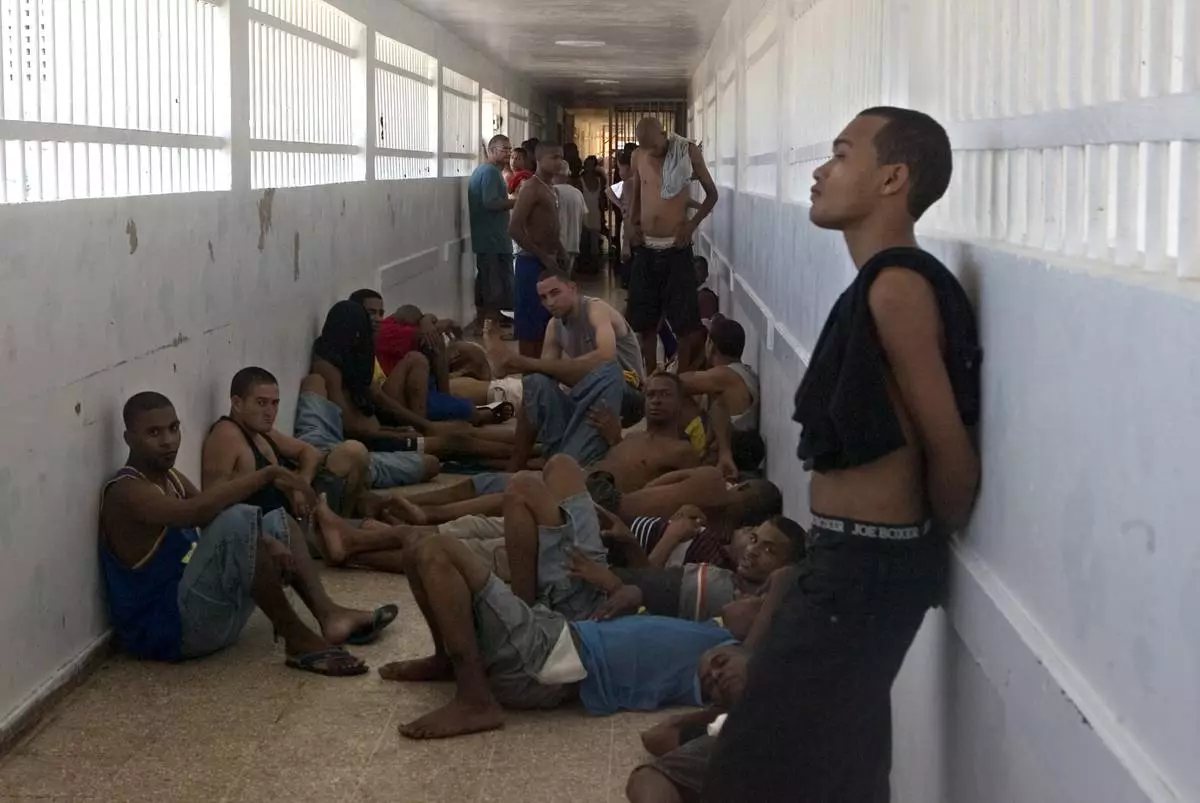
FILE - Inmates stand inside a corridor during time they are allowed to be outside of their cells at Najayo jail in San Cristobal, west of Santo Domingo, May 30, 2007. (AP Photo/Ramon Espinosa, File)
WEST PALM BEACH, Fla. (AP) — President Donald Trump on Friday said he is signing an executive order to keep TikTok running in the U.S. for another 75 days to give his administration more time to broker a deal to bring the social media platform under American ownership.
The order was announced as White House officials believed they were nearing a deal for the app’s operations to be spun off into a new company based in the U.S. and owned and operated by a majority of American investors, with China's ByteDance maintaining a minority position, according to a person familiar with the matter.
But Beijing hit the brakes on a deal Thursday after Trump announced wide-ranging tariffs around the globe, including against China. ByteDance representatives called the White House to indicate that China would no longer approve the deal until there could be negotiations about trade and tariffs, said the person, who spoke on the condition of anonymity to discuss the sensitive details of the negotiations.
Congress had mandated that the platform be divested from China by Jan. 19 or barred in the U.S. on national security grounds, but Trump moved unilaterally to extend the deadline to this weekend, as he sought to negotiate an agreement to keep it running. Trump has recently entertained an array of offers from U.S. businesses seeking to buy a share of the popular social media site, but China’s ByteDance, which owns TikTok and its closely held algorithm, has publicly insisted the platform is not for sale.
But on Friday it became uncertain whether a tentative deal could be announced after the Chinese government’s reversal of its position complicated TikTok’s ability to send clear signals about the nature of the agreement that had been reached for fear of upsetting its negotiations with Chinese regulators.
Trump instead announced he was signing an executive order to extend a 75-day pause on the ban that was set to go into effect Saturday.
The near-deal was constructed over the course of months, with Vice President JD Vance’s team negotiating directly with several potential investors and officials from ByteDance.
The plan called for a 120-day closing period to finalize the paperwork and financing. The deal also had the approval of existing investors, new investors, ByteDance and the administration.
The Trump administration had confidence that China would approve the proposed deal until the tariffs went into effect. Trump indicated Friday that he can still get a deal done during the 75-day extension.
“My Administration has been working very hard on a Deal to SAVE TIKTOK, and we have made tremendous progress,” Trump posted on his social media platform. “The Deal requires more work to ensure all necessary approvals are signed, which is why I am signing an Executive Order to keep TikTok up and running for an additional 75 days.”
Trump added, “We look forward to working with TikTok and China to close the Deal.”
A spokesperson for ByteDance confirmed in a statement that the company has been discussing a “potential solution” with the U.S. government but noted that an “agreement has not been executed.”
“There are key matters to be resolved,” the spokesperson said. “Any agreement will be subject to approval under Chinese law.”
TikTok, which has headquarters in Singapore and Los Angeles, has said it prioritizes user safety, and China’s Foreign Ministry has said China’s government has never and will not ask companies to “collect or provide data, information or intelligence” held in foreign countries.
Trump’s delay of the ban marks the second time that he has temporarily blocked the 2024 law that banned the popular social video app after the deadline passed for ByteDance to divest. That law was passed with bipartisan support in Congress and upheld unanimously by the Supreme Court, which said the ban was necessary for national security.
If the extension keeps control of TikTok’s algorithm under ByteDance’s authority, those national security concerns persist.
Chris Pierson, CEO of the cybersecurity and privacy protection platform BlackCloak, said that if the algorithm is still controlled by ByteDance, then it is still “controlled by a company that is in a foreign, adversarial nation-state that actually could use that data for other means.”
“The main reason for all this is the control of data and the control of the algorithm,” said Pierson, who served on the Department of Homeland Security’s Privacy Committee and Cybersecurity Subcommittee for more than a decade. “If neither of those two things change, then it has not changed the underlying purpose, and it has not changed the underlying risks that are presented.”
The Republican president’s executive orders have spurred more than 130 lawsuits in the little more than two months he has been in office, but his order delaying a ban on TikTok has barely generated a peep. None of those suits challenges his temporary block of the law banning TikTok.
The law allows for one 90-day reprieve, but only if there’s a deal on the table and a formal notification to Congress. Trump’s actions so far violate the law, said Alan Rozenshtein, an associate law professor at the University of Minnesota.
Rozenshtein pushed back on Trump’s claim that delaying the ban is an “extension.”
“He’s not extending anything. This continues to simply be a unilateral non enforcement declaration,” he said. “All he’s doing is saying that he will not enforce the law for 75 more days. The law is still in effect. The companies are still violating it by providing services to Tiktok.
“The national security risks posed by TikTok persist under this extension, he said.
Vitus Spehar, who runs the TikTok account @UndertheDeskNews, said that although they benefit from the extension, they are “concerned about the precedent Trump has set for directing his Department of Justice to not enforce laws passed by Congress.”
“I’d like to see a bill passed to repeal the ban, and an end to this back and forth once and for all,” they said.
The extension comes at a time when Americans are even more closely divided on what to do about TikTok than they were two years ago.
A recent Pew Research Center survey found that about one-third of Americans said they supported a TikTok ban, down from 50% in March 2023. Roughly one-third said they would oppose a ban, and a similar percentage said they weren’t sure.
Among those who said they supported banning the social media platform, about 8 in 10 cited concerns over users’ data security being at risk as a major factor in their decision, according to the report.
Terrell Wade, a comedian, actor and content creator with 1.5 million followers on TikTok under the handle @TheWadeEmpire, has been trying to grow his presence on other platforms since a ban was threatened in January.
“I’m glad there’s an extension, but to be honest, going through this process again feels a bit exhausting,” he said. “Every time a new deadline pops up, it starts to feel less like a real threat and more like background noise. That doesn’t mean I’m ignoring it, but it’s hard to keep reacting with the same urgency each time.”
He is keeping up his profile on Instagram, YouTube and Facebook in addition to TikTok.
“I just hope we get more clarity soon so creators like me and consumers can focus on other things rather than the ‘what ifs,’” he said.
——
AP Business Writer Mae Anderson in New York contributed to this story.
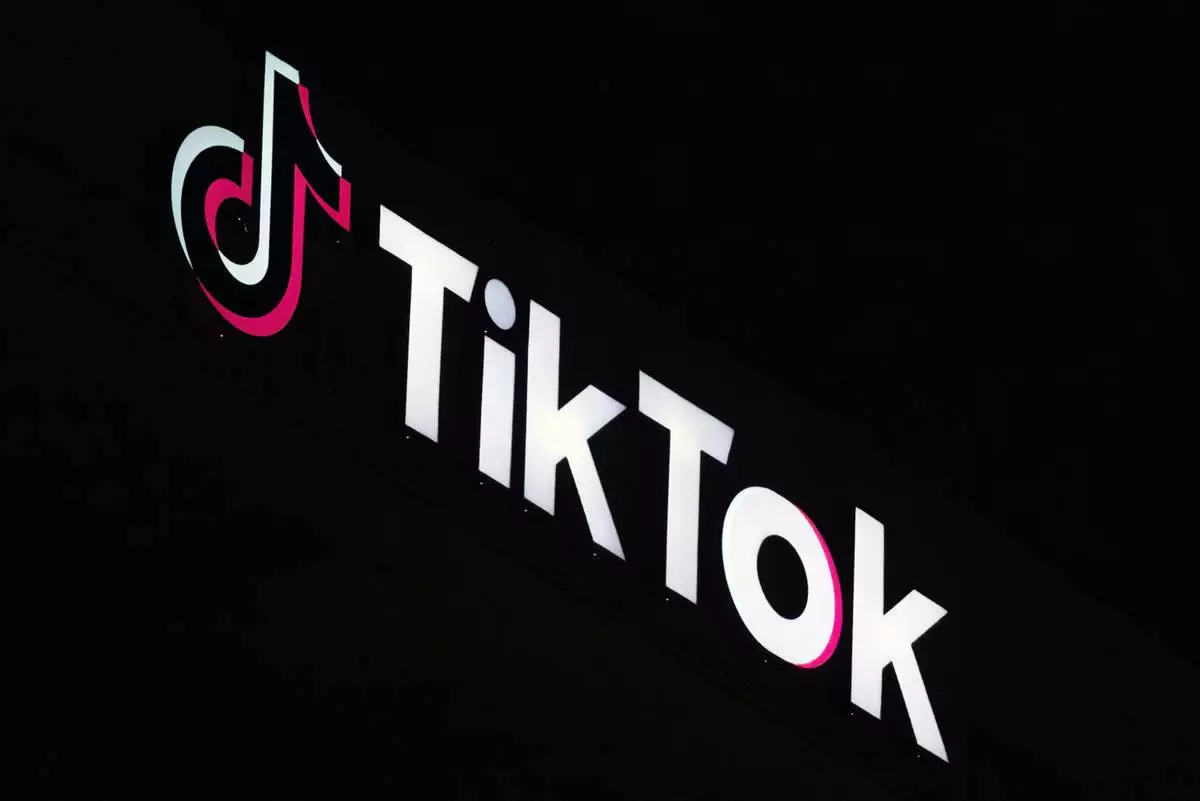
FILE - A TikTok sign is displayed on top of their building in Culver City, Calif., on Dec. 3, 2024. (AP Photo/Richard Vogel, File)
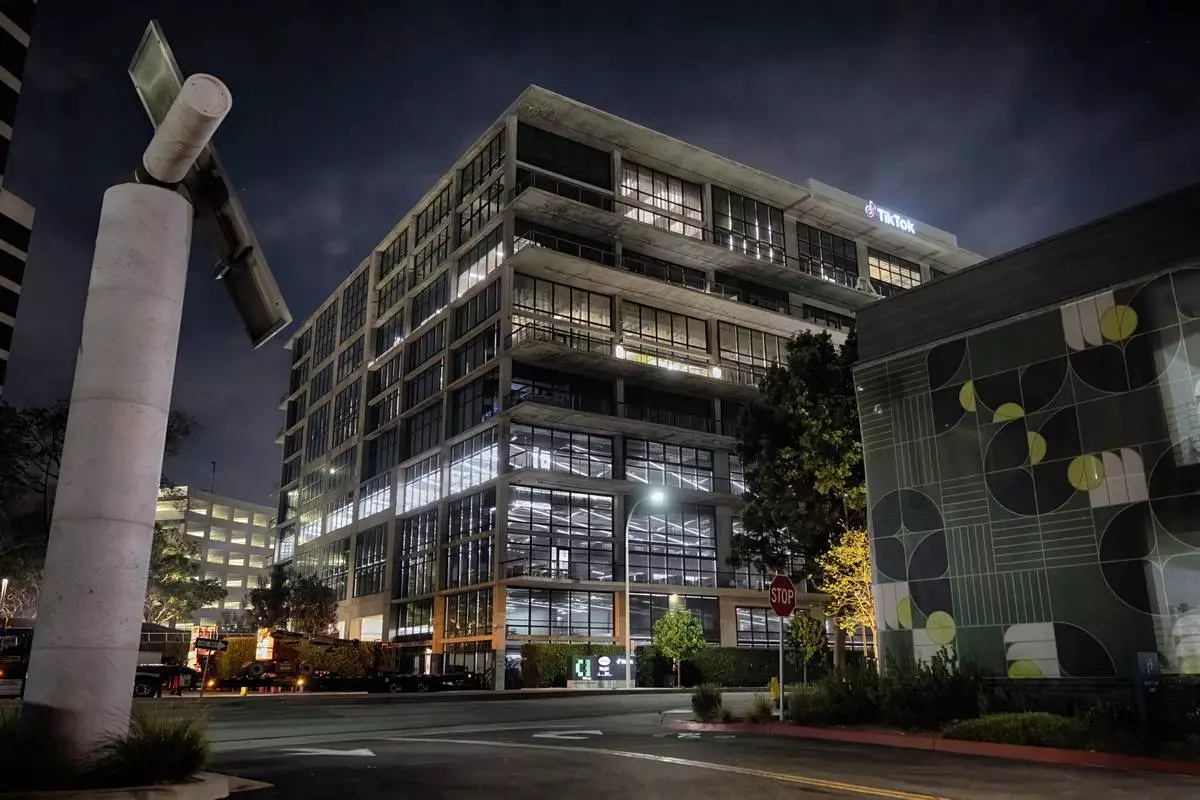
FILE - A TikTok sign is displayed on top of their building in Culver City, Calif., on Dec. 3, 2024. (AP Photo/Richard Vogel, File)
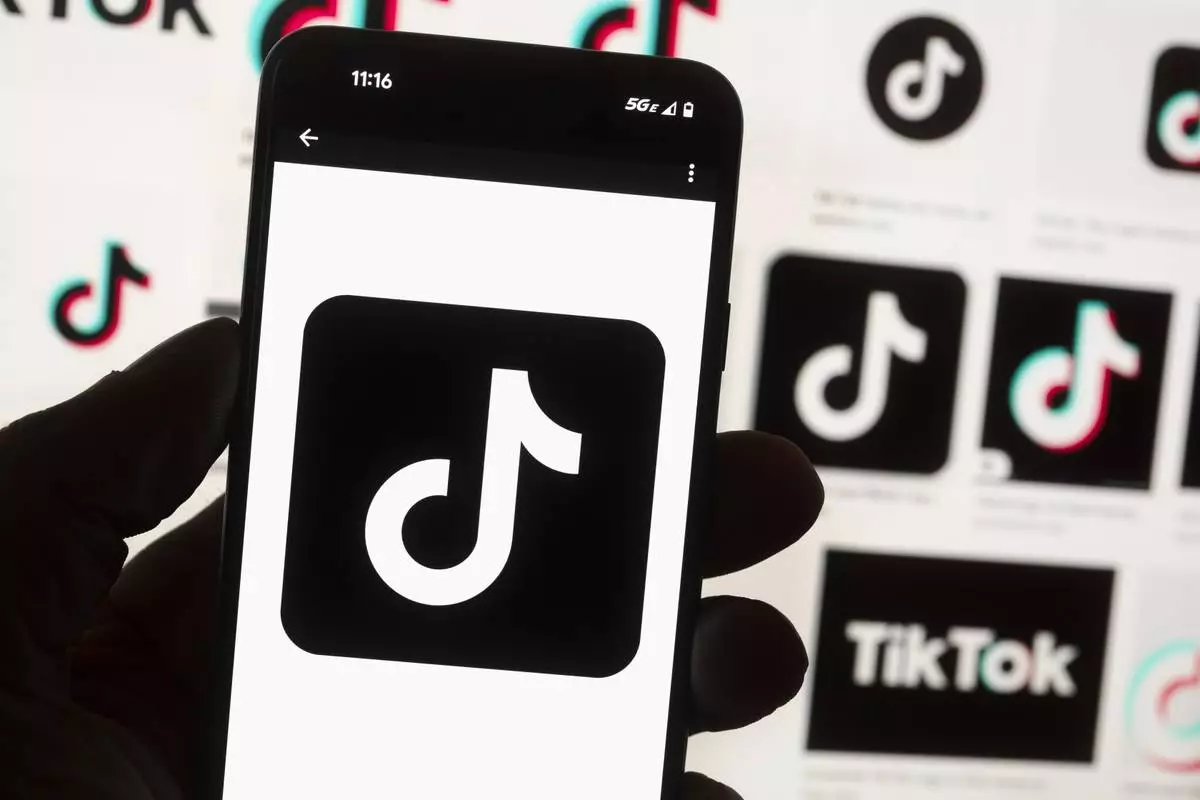
FILE - The TikTok logo is seen on a mobile phone in front of a computer screen which displays the TikTok home screen, Oct. 14, 2022, in Boston. (AP Photo/Michael Dwyer, File)
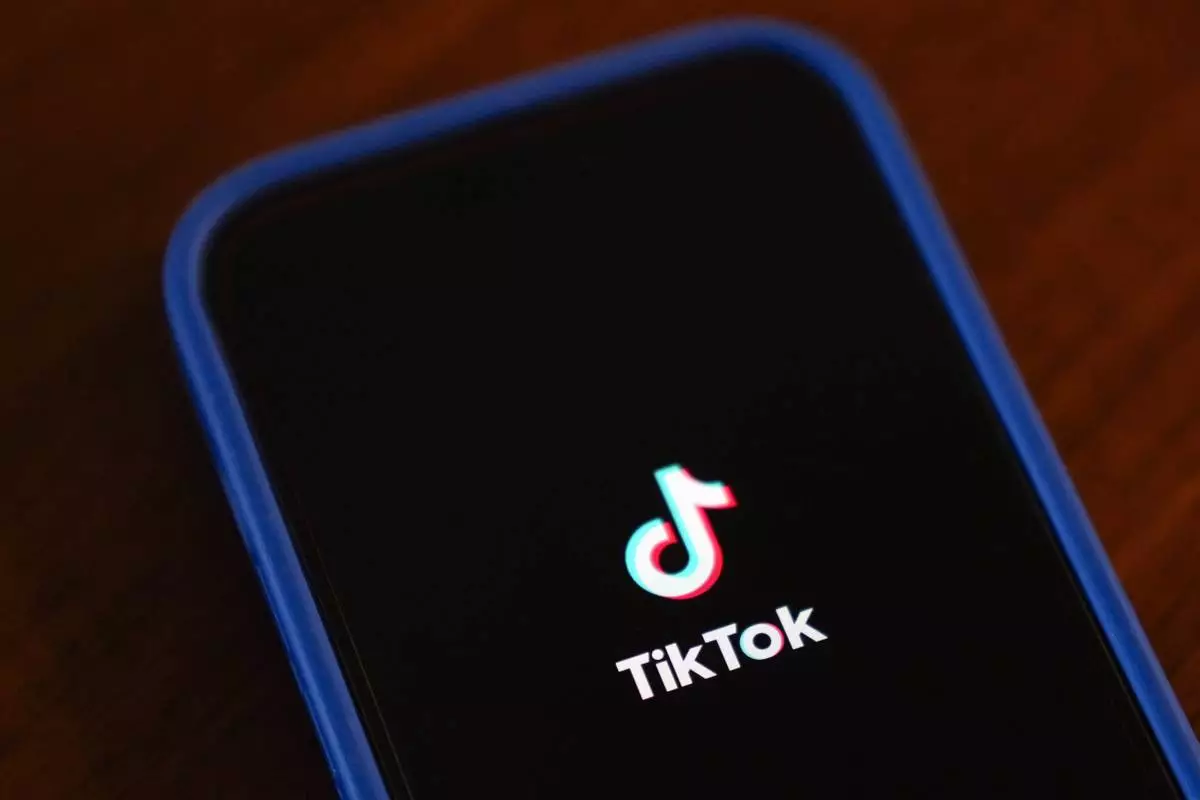
FILE - The TikTok app logo is shown on an iPhone on Friday, Jan. 17, 2025, in Houston. (AP Photo/Ashley Landis, File)



